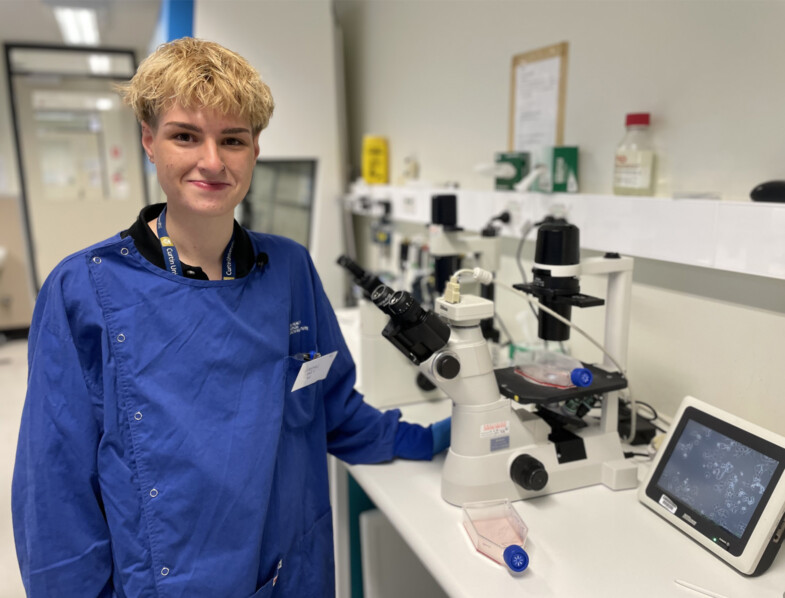Jordan Fyfe from Curtin University is one of our PhD Top Up Scholarship recipients for 2024. She shares how this scholarship, supported by the Lion’s Cancer Institute, is funding her research into finding new ways to detect and treat pancreatic cancer.
Jordan’s research is looking at new ways to boost immune cells to find and kill pancreatic cancer cells. Jordan and her group have identified a lipid molecule that is only produced in pancreatic cancer cells. This molecule inhibits immune cells’ capacity to fight the cancer cells.
“We want to see if blocking this molecule can boost immune cells target the cancer cells” she says.
Pancreatic cancer is one of the deadliest cancers, as it is usually detected late in the disease after the cancer cells have already spread. Jordan’s research could also help identify a non-invasive way to detect pancreatic cancer before it spreads.
“Currently, the only way to detect pancreatic cancer is through invasive tests, such as biopsy and surgery. We hope to help identify non-invasive options like blood tests, from which we can find markers and identify pancreatic cancer before it has spread. This could mean that people can get early intervention and early treatment, which we know significantly increases the lifespan of somebody with pancreatic cancer.”
When Jordan first started her cancer research career, she felt like there were still so many unanswered questions, which motivated her to become involved in research.
“I’d always known that I wanted to do cancer research because I felt like I had all these questions. The more I learnt about it, the more I realised how much we don’t know. I want to work towards translating the research into helping patients and people.”
Jordan acknowledges the generosity of the donors who support her scholarship and her work.
“It’s allowed me to make headway on this research. The work I’m doing wouldn’t be possible without these donations.
“Support from the WA community is crucial for our research — it, enables us to give back, and makes our work possible. We depend on generous donations to achieve our results.
For more information
- Read more about the research we are funding.
- Learn about our research funding strategy and how we utilise your vital donations.
- Donate to support local cancer research today.
